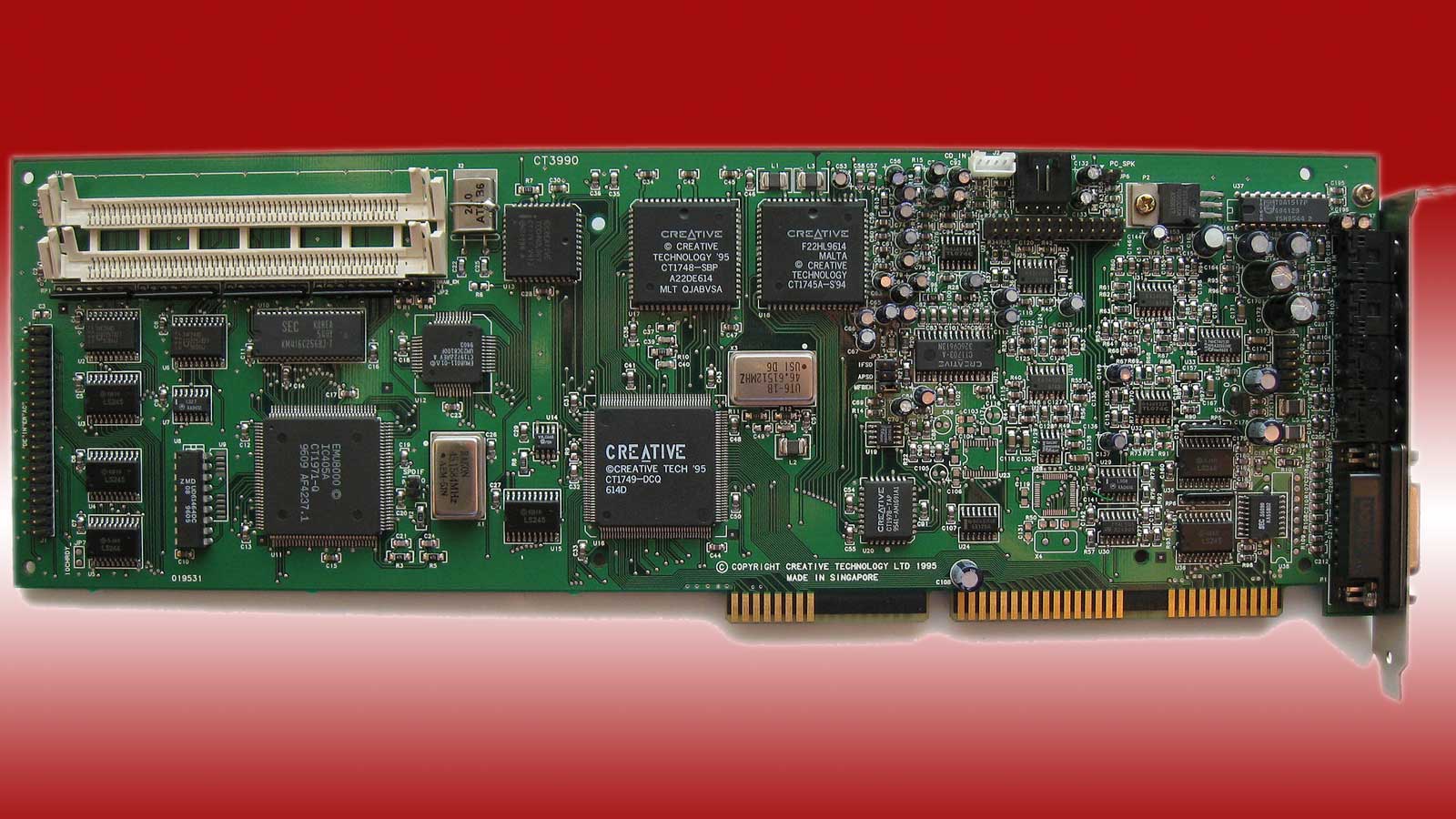Legendary Sound Blaster ISA sound card gets a driver update 30 years later — patch squashes first bug report after 25 years
Pesky DMA issues have been causing unexpected noise and freezes.

Linux developers continue to surprise with their dogged support for retro hardware. A case in point is provided by Takashi Iwai’s recent pull request (h/t Phoron) to implement Creative Sound Blaster AWE32 fixes for the Linux 6.16-rc3 kernel. This old ISA slot sound card debuted in 1994 and is probably best known as the launch vehicle for Creative’s SoundFont standard.
Iwai’s pull request outlined what they called a “collection of small fixes,” which we are sure will nevertheless be welcome to enthusiasts cradling older systems. Among the fixes are those aimed at the “legendary SoundBlaster AWE32 ISA device.” A note adds that the fix may have been precipitated after devs got “a bug report after 25 years.”
DMA issues - unwanted noise, freezes
Digging into the fixes aimed at the AWE32 a little deeper, we can see that one is a workaround to a DMA issue. Specifically, it will “enforce the disablement of DMA setups when the DMA setup is changed by the kcontrol.” It thus prevents unexpected (unpleasant?) noises from being generated when the DMA mode is changed.
Another AWE32 commit prevents DMA mode changes when a device is busy playing back a PCM stream. Due to these two bugs, user (s) experienced system freezes.
The rest of the sound driver updates from Iwai address Cirrus codecs, the i.MX8 DSP, AMD quirks with its HD Audio and USB audio, and some minor build fixes.
These kernel fixes may iron out annoying wrinkles in modern Linux desktops packing the Creative SoundBlaster AWE32 ISA sound card. However, as highlighted by Phoronix, modern Linux desktops with ISA slots and running the modern PipeWire/WirePlumber sound stack will likely be rather sluggish. A quick check reveals that, in the consumer space, ISA slot-equipped motherboards were last seen in the LGA775 socket era (approx 20 years ago).
Not every PC component is so cherished
In a contrasting report from April, we noted mounting pressure from some Linux developers to phase out support for Intel’s i486 series and first-gen Pentium (1993) CPUs.
Get Tom's Hardware's best news and in-depth reviews, straight to your inbox.
Linux 6.16-rc3 is the third release candidate for kernel version 6.16, which should be final and ready in late July or early August.
Follow Tom's Hardware on Google News to get our up-to-date news, analysis, and reviews in your feeds. Make sure to click the Follow button.

Mark Tyson is a news editor at Tom's Hardware. He enjoys covering the full breadth of PC tech; from business and semiconductor design to products approaching the edge of reason.
-
bit_user Reply
And you'd want a board that supported ISA DMA, which apparently not all of the PCI-ISA bridges did. You can just forget about using PCIe-ISA bridges, since PCIe doesn't support port-based addressing.The article said:A quick check reveals that, in the consumer space, ISA slot-equipped motherboards were last seen in the LGA775 socket era (approx 20 years ago).
TL;DR: the best bet is to at least stick with a sound card that's PCI-based. -
palladin9479 Wow I actually have one of those in my retro rig a few feet from me. It's running Windows98SE but mostly it boots into DOS for those 90's era DOS games.Reply -
TerryLaze Reply
Well, ackchyually.bit_user said:And you'd want a board that supported ISA DMA, which apparently not all of the PCI-ISA bridges did. You can just forget about using PCIe-ISA bridges, since PCIe doesn't support port-based addressing.
TL;DR: the best bet is to at least stick with a sound card that's PCI-based.
TPM basically has ISA on it so there are newer boards that you can jury rig to support ISA.
putHMSzu5ogView: https://www.youtube.com/watch?v=putHMSzu5og -
SirStephenH While it's nice to keep support going for ancient hardware, it adds unnecessary bloat to modern OSes for the benefit of only a handful of devices still in use.Reply -
palladin9479 ReplySirStephenH said:While it's nice to keep support going for ancient hardware, it adds unnecessary bloat to modern OSes for the benefit of only a handful of devices still in use.
It's for retro gaming / setups. There is now a very large community of people who grew up with 80's and 90's era computers and want to reexperience those games on original hardware. Emulation really can only do basic stuff, that era was dominated with hardware specific feature implementations that games used directly instead of going through some sort of intermediary driver or library, the only way to get an authentic feel is to actually have the real hardware present.
That rig I mentioned earlier, it's full specs are
CPU: AMD K6/2+ 450
MB: ASUS P5A
https://theretroweb.com/motherboards/s/asus-p5a
Memory: 256MB PC-100 SDRAM
GPU: nVidia GF4 440MX AGP
https://theretroweb.com/expansioncards/s/nvidia-geforce4-mx440-8x-64mb
NIC: Intel Pro100
Sound Cards
Creative Labs Sound Blaster AWE64 value (AWE32 with 512kb memory soldiered on)
https://theretroweb.com/expansioncards/s/creative-soundblaster-awe64-value-ct4520
Yamaha YMF715E + X2GS SE Wavetable daughterboard
https://www.vogons.org/download/file.php?id=217480&mode=viewhttps://www.serdashop.com/X2GS-SE
The AWE64 gives me real Sound Blaster 16 and AWE32 compatibility for games that use it. The Yamaha gives me a real OPL3SAX which is an absolute godsend for FM synth in older games along with a real MPU401 MIDI interface with a 26-bit waveblaster daughter board connector. I plugged in a daughterboard that has the original Roland Sound Canvas 55 ROM sets on it.
A linux kernel patch to fix a long standing DMA hanging note bug on the AWE32/64 models isn't that big a deal when that card is still used in so many retro rigs. Mine has Win98SE loaded onto it because I want real DOS but I can totally see someone using linux instead and then dosbox or other dos emulation software while passing through the sound to a real era specific sound card.